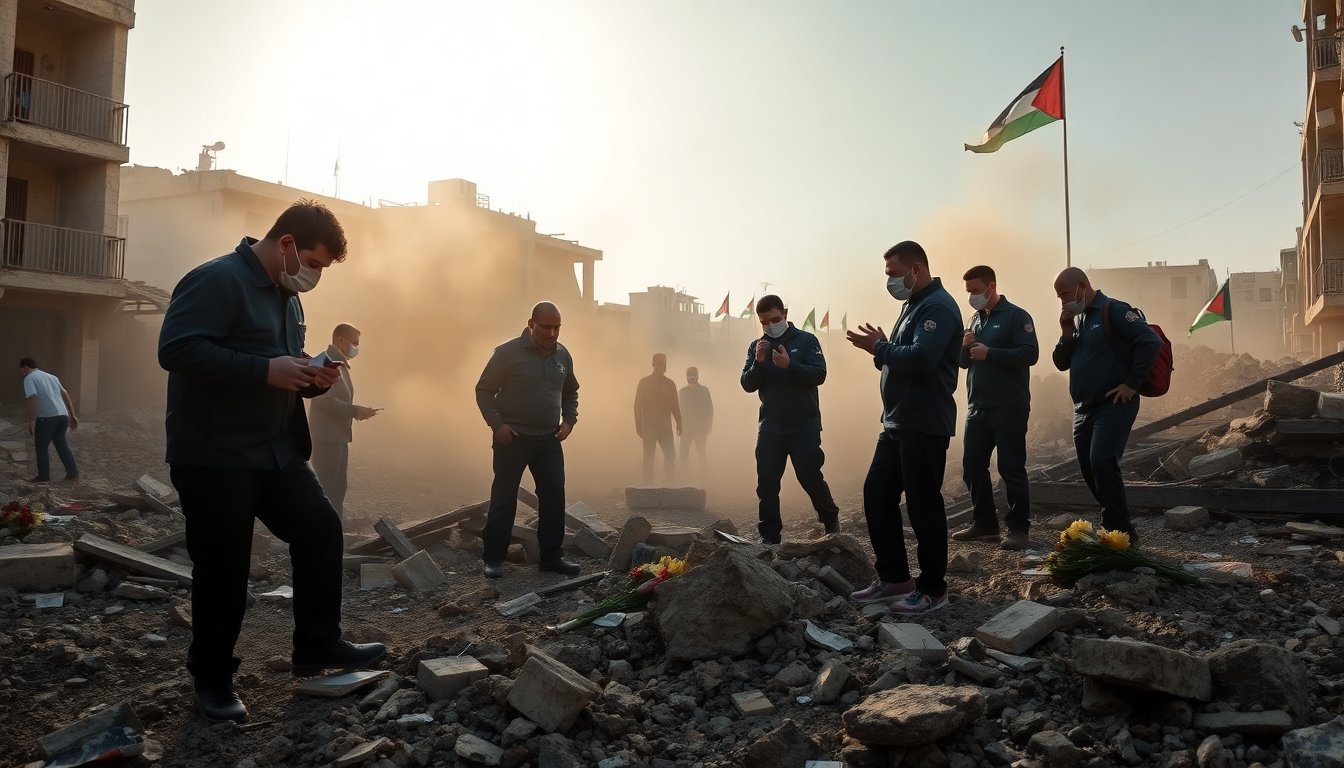Table of Contents
In a significant development regarding the ongoing hostage crisis, Israel has publicly identified four individuals whose remains have been retrieved. This comes as Hamas has also handed over four additional bodies, intensifying the focus on the fate of remaining hostages still held in Gaza. As the situation evolves, the international community is amplifying calls for the release of those who are yet to be returned.
The ongoing conflict has led to numerous casualties and emotional turmoil for families involved. Each recovered body tells a story of loss, making the recovery process not only a matter of logistics but also one of profound human impact. The recent exchanges have sparked a renewed dialogue on the complex dynamics between Israel and Hamas.
The returned hostages: Who are they?
Among the four identified deceased are individuals whose lives were cut short amidst the chaos. Their identities have been made public, allowing loved ones and the nation to grieve. Each of these individuals was part of a larger narrative that reflects the toll of the ongoing strife. The retrieval of their remains provides some closure to families who have endured heart-wrenching uncertainty.
Profiles of the deceased hostages
The first individual identified is David Cohen, a 36-year-old father of two, whose disappearance left his family in despair. His story is one of resilience, as family members held onto hope throughout the ordeal. Another victim, Rachel Stein, was a community activist known for her efforts in promoting peace initiatives. Her loss has reverberated through the community, highlighting the fragility of life in conflict zones.
Then there’s Michael Levy, a teacher who dedicated his career to educating the youth about coexistence. His absence has left a void in the educational sector, and many are mourning the loss of an inspiring figure. Lastly, Sarah Green, a volunteer at local shelters, was an advocate for those in need. Her commitment to humanitarian efforts serves as a poignant reminder of the potential for good amidst adversity.
The pressure on Hamas to release remaining hostages
As the bodies of the deceased hostages have been returned, there is an increasing demand for Hamas to release the remaining captives. International pressure is mounting, with various governments and organizations calling for action. The humanitarian implications of this situation cannot be overstated, as families continue to live in limbo, hoping for the safe return of their loved ones.
International response and implications
The global reaction has been one of sadness mixed with a sense of urgency. Many are advocating for negotiations that prioritize the well-being of the hostages still in captivity. The situation has drawn attention to the critical need for dialogue and reconciliation efforts between conflicting parties. In moments of despair, the international community stands as a beacon of hope, urging for a peaceful resolution.
The situation remains fluid, and developments are expected as negotiations progress. The humanitarian aspect of the crisis underscores the necessity for continued advocacy for the hostages. As long as there are lives hanging in the balance, the calls for action will persist.
A call for compassion and resolution
The recent identification of deceased hostages and the return of their bodies underscore the urgent need for a comprehensive approach to the ongoing crisis. The stories of David, Rachel, Michael, and Sarah remind us of the human cost of conflict. As we navigate these turbulent waters, it is essential to maintain dialogue and seek pathways towards peace.
The hope remains that families will find closure and that all hostages will be returned safely. The world watches closely, advocating for a resolution that honors the lives of those affected and fosters a future where such tragedies do not repeat. The journey towards peace requires collective effort, understanding, and compassion.


